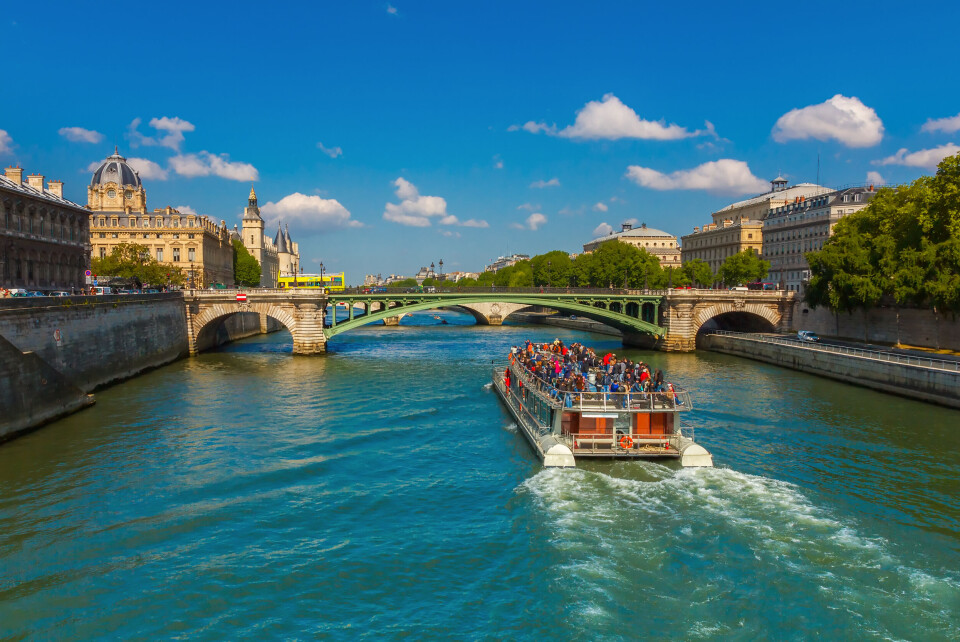-
Is it time to stop changing the clocks in Europe?
Campaigners say it would help improve health and also reduce traffic accidents
-
Gisèle Pelicot memoir hits sales top spot in France
The book, which has been translated into 22 languages, left Queen Camilla ‘speechless’
-
New tax on deliveries from outside EU: How will it affect customers?
The new charge will apply to all deliveries valued under €150
Fears over safety at Paris Olympics after Seine swimming race scrapped
The cancellation was caused by an overflow of sewage into the Parisian river

A swimming event in the River Seine in Paris was cancelled over levels of bacteria in the water, sparking fears over the safety of the water before the Olympic Games.
The event, part of the FINA Open Water Tour – which sees swimmers race in stretches of water like rivers and seas – initially pushed its women’s event back from Saturday (August 5) to Sunday (August 6), after heavy rainfall caused excess pollution in the river.
On Sunday, however, both the men’s and women’s races were cancelled after testing of the river water saw pollution levels still too high for safe swimming.
Authorities say the increase in pollution levels was caused by heavy rain and storms around the capital, leading to an overspill of sewage water into the river.
It has cast doubts on the sanitary conditions of the river, which is set to take centre stage for the 2024 Paris Olympics opening ceremony.
On top of this, the river is set to host three swimming events during the Olympics and Paralympics next summer – the 10 km swimming marathon and the swimming stages of the triathlon and para-triathlon.
All events cancelled
Not a single toe was dipped into the Seine by swimmers on the Open Water Tour over the weekend due to the pollution spike.
Training sessions for the swimmers were cancelled on Friday, followed by the women's event being pushed back to Sunday before both that and the men’s event were eventually called off before they could begin.
The World Aquatics federation (the international swimming federation) said they were “disappointed that water quality has led to the cancellation of this World Cup.”
“The health of the athletes must always be our first priority," said Husain Al-Musallam, president of World Aquatics about the decision.
The event was seen by many as a test run of whether the Seine would be able to host water events during next year’s Olympic Games.
Storm caused issues
Previous tests of water pollution at designated points across the river have yielded positive results.
Due to extended rainfall, an overflow of raw, untreated sewage from Parisian homes was pumped directly into the Seine before last weekend, as sewage systems struggled to contain the excess water levels.
Efforts to limit the amount of pollution entering the river have been underway since 2016 – including reconnecting homes and boats on the river to an upgraded sewage system – but heavy rainfall is still an issue.
To compensate, authorities are building an underwater reservoir to collect excess sewage during storms – enough to fill 12 Olympic size swimming pools – to keep unfiltered sewage out of the Seine, which should be finished before next summer.
You can watch a video about the projects by French news site Le Monde (the video is in English) here.
“We understand that infrastructure projects will be completed and will bring a significant improvement in water quality for the Olympics next year,” said the World Aquatics federation, adding they are “enthusiastic” about hosting swimming events in the Seine next year.
Read more: Paris 2024: Olympic flame’s route through France is revealed
‘Olympic legacy’
Swimming in the Seine has been banned since 1923, although returning the river to a swimmable condition has often been part of Parisian discourse.
In 1990, future President and then-Paris Mayoral candidate Jacques Chirac said he would make the river clean – and swim in it to prove so – but his promise never came to fruition.
Current mayor Anne Hidalgo has made making the river safe to swim in one of her election promises and says it will be part of the ‘Olympic legacy’ to do so.
In the summer of 2025 – one year after the Olympics – a number of safe swimming spots are set to open along the river, both in Paris and the surrounding departments.
























